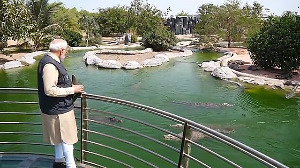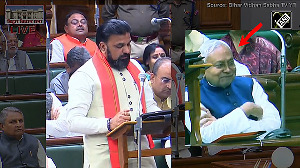Fall in prices of crude oil, metals and other manufactured items helped cool inflation for the second straight week to 8.90 per cent, the lowest in five months, giving the Reserve Bank of India the legroom needed to cut policy rates to fuel economic growth.
Inflation declined by 0.8 percentage points during the week ended November 8 from 8.98 per cent a week ago, prompting analysts to predict that the rate of price rise would come down to around 5.5 per cent this fiscal end, much lower than what was anticipated by the Reserve Bank.
Even as falling international crude prices and abolition of basic customs duty on aviation turbine fuel by the government softened fuel prices and metal rates came down simultaneously, primary food articles such as vegetables and fruits turned expensive.
The index for fuel, power, light and lubricants declined by 0.9 percentage points, as prices of ATF, light diesel oil, furnace oil and naphtha came down quite a bit.
It was the hike in administered prices of petrol, diesel and LPG in June that had pushed inflation to double figures.
It remained in double digits till almost the end of October, returning to single figure only after crude prices fell -- giving the government a breather just ahead of assembly polls in a number of states, including Delhi.
"Going ahead, the base effect will be favourable to bring inflation down. We expect it to reach 5.5 per cent by March. This will help RBI to ease monetary policy," Crisil principal economist D K Joshi said.
He expected a 50 basis-point cut in short term rates -- Repo and Reverse Repo -- as well as 100 basis points slash in mandatory deposit requirements of banks.
The RBI has already injected around Rs 275,000 crore (Rs 2,750 billion) in the system by taking a slew of cuts in policy rates and reserve ratios.






 © 2025
© 2025